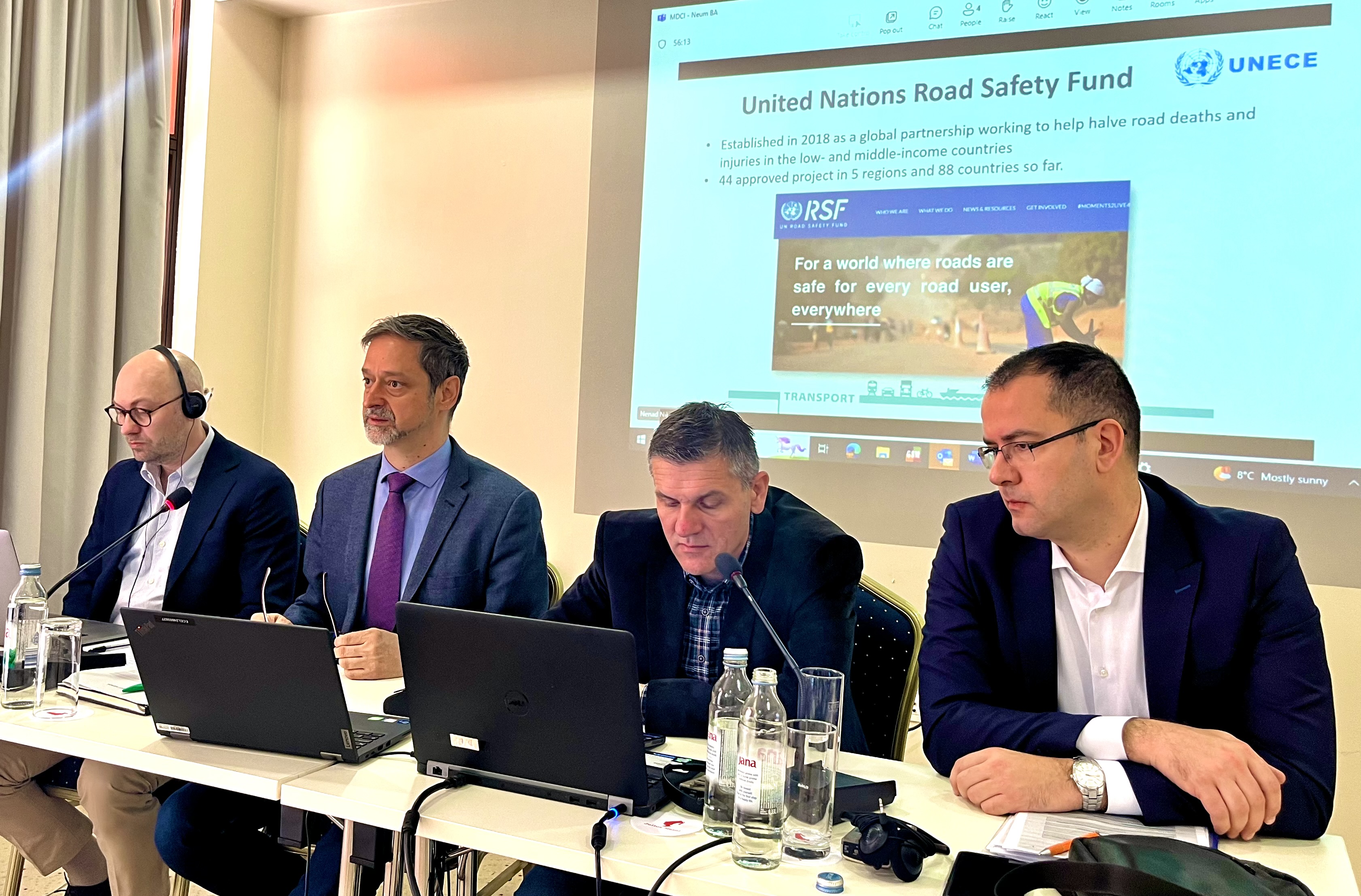
Neum, Bosnia and Herzegovina, April 16, 2025 – Bosnia and Herzegovina (BiH) and the Republic of Serbia are making significant strides in strengthening road safety systems. As part of the UNRSF-funded project, "Better Road Safety System based on In-Depth Analysis of Road Accidents in Bosnia and Herzegovina and Serbia," more than 30 road safety stakeholders participated in a series of Multi-Disciplinary Collision Investigations (MDCI) training workshops held in Neum from April 8 to 16. Organized by the United Nations Economic Commission for Europe (UNECE) and the World Health Organization (WHO), these workshops introduced MDCI as a critical tool for improving national road safety policies and reducing road crash fatalities.
Both BiH and Serbia face road safety challenges, with road fatality rates significantly higher than the European Union (EU) average. In 2023, Serbia recorded 75 road deaths per million inhabitants, while Bosnia and Herzegovina had 72.2, compared to the EU average of 46. The lack of MDCI implementation has been a key gap, limiting the ability to conduct thorough crash analysis and apply a Safe System approach.
The workshops provided hands-on training in real crash analysis, equipping participants with the necessary skills to conduct in-depth investigations and use evidence-based data for policy development. MDCI goes beyond surface-level crash assessments, enabling authorities to identify the root causes of collisions and implement targeted road safety measures.
“By adopting MDCI, we can move beyond surface-level analysis and tackle the real factors contributing to road crashes,” said Mr. Samir Dzaferovic, Assistant Minister in the Ministry of Communications and Transport of Bosnia and Herzegovina. “This workshop has been invaluable in equipping us with the knowledge to apply these insights in our daily work and decision-making processes.”
Currently, MDCI is not yet part of national legislation in either country. However, its integration is expected to play a transformative role in shaping road safety strategies. “While both countries have already incorporated road safety audits and inspections into their national legislation, MDCI is the next essential step to learn from collision investigations and prevent further road fatalities. As the custodian of UN road safety legal instruments, UNECE stands ready to assist regional and national policy- and decision-makers in their endeavour to minimize and eventually eliminate road crash trauma for all road users,” explained Mr Nikolic, UNECE Regional Adviser.”

The MDCI pilot workshops mark an important milestone in the implementation of the UNRSF-funded project, laying the foundation for legislative changes and long-term improvements in road safety. By equipping national authorities with the right tools and methodologies, the project aims to accelerate progress toward safer roads in Bosnia and Herzegovina and Serbia, ultimately contributing to the UN’s global vision of halving road fatalities and injuries by 2030.
The Better Road Safety System based on in-depth analysis of road accidents in Bosnia and Herzegovina and Serbia project is funded by the United Nations Road Safety Fund (UNRSF) and implemented by the United Nations Economic Commission for Europe (UNECE and the World Health Organization (WHO).
